When the Adults Change, Everything Changes: Seismic shifts in school behaviour
£16.80
In When the Adults Change, Everything Changes: Seismic Shifts in School Behaviour, Paul Dix upends the debate on behaviour management in schools and offers effective tips and strategies that serve to end the search for change in children and turn the focus back on the adults.
You can buy in the best behaviour tracking software, introduce 24/7 detentions or scream ‘NO EXCUSES’ as often as you want – but ultimately the solution lies with the behaviour of the adults. It is the only behaviour over which we have absolute control.
Drawing on anecdotal case studies, scripted interventions and approaches which have been tried and tested in a range of contexts, from the most challenging urban comprehensives to the most privileged international schools, behaviour training expert and Pivotal Education director Paul Dix advocates an inclusive approach that is practical, transformative and rippling with respect for staff and learners. An approach in which behavioural expectations and boundaries are exemplified by people, not by a thousand rules that nobody can recall.
When the Adults Change, Everything Changes illustrates how, with their traditional sanction- and exclusion-led methods, the ‘punishment brigade’ are losing the argument. It outlines how each school can build authentic practice on a stable platform, resulting in shifts in daily rules and routines, in how we deal with the angriest learners, in restorative practice and in how we appreciate positive behaviour.
Each chapter is themed and concludes with three helpful checklists – Testing, Watch out for and Nuggets – designed to help you form your own behaviour blueprint. Throughout the book both class teachers and school leaders will find indispensable advice about how to involve all staff in developing a whole school ethos built on kindness, empathy and understanding.
Suitable for all head teachers, school leaders, teachers, NQTs and classroom assistants – in any phase or context, including SEND and alternative provision settings – who are looking to upgrade their own classroom management or school behaviour plan.
Read more
Additional information
| Publisher | Independent Thinking Press (29 Jun. 2017) |
|---|---|
| Language | English |
| Paperback | 208 pages |
| ISBN-10 | 9781781352731 |
| ISBN-13 | 978-1781352731 |
| Dimensions | 15.49 x 1.52 x 23.11 cm |

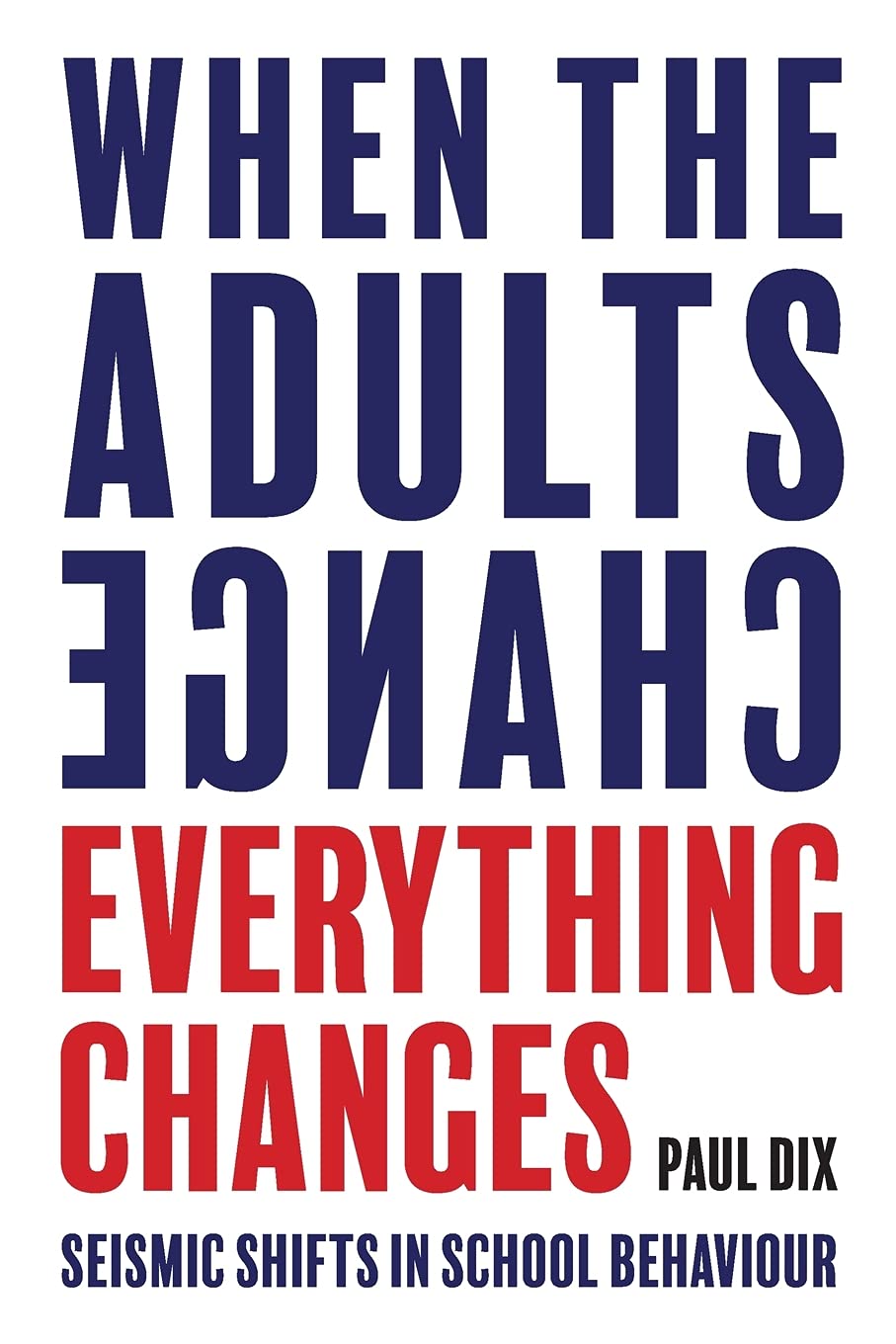
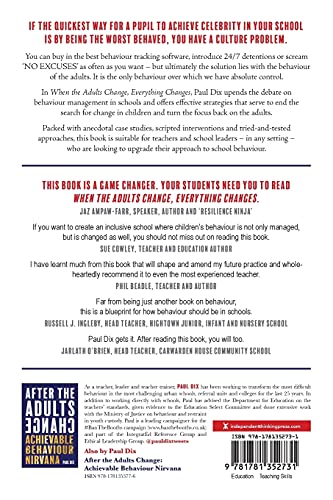




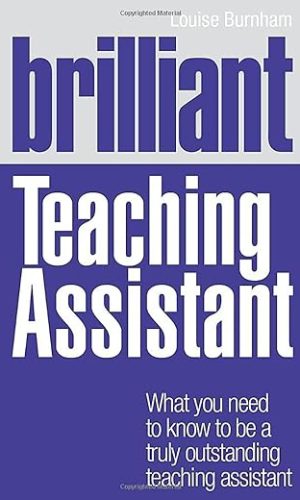
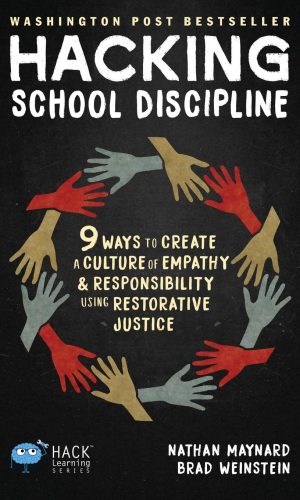

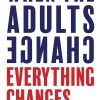
by Mrs. I. Wilson
It’s a bit repetitive but he makes good points and he suggests actual practice change. I’ve been teaching for over 40 years and he has changed the way I do things. And it works. These suggested practices really do have an impact on pupil self esteem and behaviours. But best of all this is a plan to change children’s relationships with adults and with schooling.
by beelady
I came across Paul Dix on a course run by Pivotal Education some 7 years ago and could see that it might work but bringing the ideas back to my school was harder to put into practice. We had a very different behaviour policy and I did not have the confidence to try the practice as a HLTA.
Moving on and there has been a shift in how my school deals with behaviour, looking beyond the behaviour to the children themselves. It has been recognised that children need consistency, to trust the adults around them and have achievable targets. It can be a series of small steps from both sides to get the ‘behaviour nirvana’ but the techniques do work.
Crucially though, the SLT need to be on board as well. So if you like what you read, tell them about it too
This book has now appeared on the teacher training book list. About time too
by Dr Tim O’Brien
One option available to schools and other organisations to whom the behaviour of children and young people is a priority is to adopt the so-called ‘No Excuses’ approach. Paul Dix makes it very clear that he is opposed to the ‘No Excuses’ approach and it’s “ugly deterrents”. He has a disregard for ‘Zero Tolerance’ too, which, he argues, inevitably leads to increased punishments and ultimate exclusion. He also calls out the damaging interventions of, what he refers to as, “the punishment brigade”. Paul Dix believes in – and describes – a different way. This book is about that different way.
The author proposes the development of a culture in schools where positive routines and practical strategies create support and certainty. He vehemently argues that schools – all types of schools – should create a culture that promotes visible consistency, botheredness and kindness; a culture where young people are “ready, respectful and safe”. It is also a reflective culture that asks questions like, ‘what would it be like if adults refused to shout?’ ‘what would it be like if we focused positive attention on effort and not on achievement?’ ‘what would it be like if, when appropriate, the adults said sorry?’ The author is interested in how changes like this can and will have a positive impact upon behaviour in the school?
What Paul Dix has achieved in this book is to challenge and move beyond inherently problematic adult-constructed systemic impositions on young people. He offers a radically different vision and perspective where adults in every school take a look at their own behaviour and how that impacts upon school culture regarding behaviour and wider. The author is not saying that “difficult” or “extreme behaviour” is the fault of teachers. In fact, he asserts that schools should support teachers who are dealing with such challenges. His proposition is that the only behaviour that adults can have complete control over is their own. The title of the book illustrates what he thinks happens when adults do take control of their own behaviour.
The writing is forthright – for example, Chapter 10 is called “Your Behaviour Policy Sucks”. The author puts forward a simple solution so that weighty and meaningless behaviour policy documents can be banished from schools. The book is realistic – for example, things do not always go well and therefore restorative approaches are detailed should they be needed. The individuality of young people is respected throughout – for example, the reader is encouraged to think about what might be going on in the life of some children and how that can impact upon their behaviour. The whole tone of the book is passionate and optimistic – change can happen and this book will help it to happen.
On the back cover of the book Paul Dix is described as a ‘notorious teacher-wrangler’.
If you are a teacher, especially one interested in behaviour, you should definitely buy this book and enjoy being wrangled.
You’ll have laughs along the way too.
by Karen Moore
A good read, would recommend
by Samuel Gluck
This changed my whole look at life!
Everyone has to read it!
If every person in the world would read this book, the world will be so peaceful and happy!
by Georgina
Do you ever see those videos on Instagram where they’ve bought a horse everyone says is too wild, but they tame him over the years with patience, kindness and understanding? Well this book is how to do that with humans, but quicker.
When I was a new teacher and first read this book, I hated it. “Another stick to beat teachers with”. “Great, blame me for everything when I’ve had 5 hours’ sleep”. “No students need to do as they’re told” were among my objections.
Then I moved to a school that follows these methods so I felt obliged to re-read it and try again. It makes so much sense, now. In a school with a supportive leadership team, I can apply it and see it working. My stomach doesn’t churn when I see bad behaviour about to start. I know what to do. I can stay calm and firm. I don’t get drawn into arguments. It’s a miracle!
Buy it just for the ten reasons you should never shout. Keep reading for the answer to all your behaviour management challenges.
by D
Easy to read and inspiring. Makes behavioural management achievable and offers positive procedures to encourage students to perform their best and enjoy learning.
by Mr Chay Bell
I have been teaching 29 years but still want to know more. I am really enjoying reading this book.